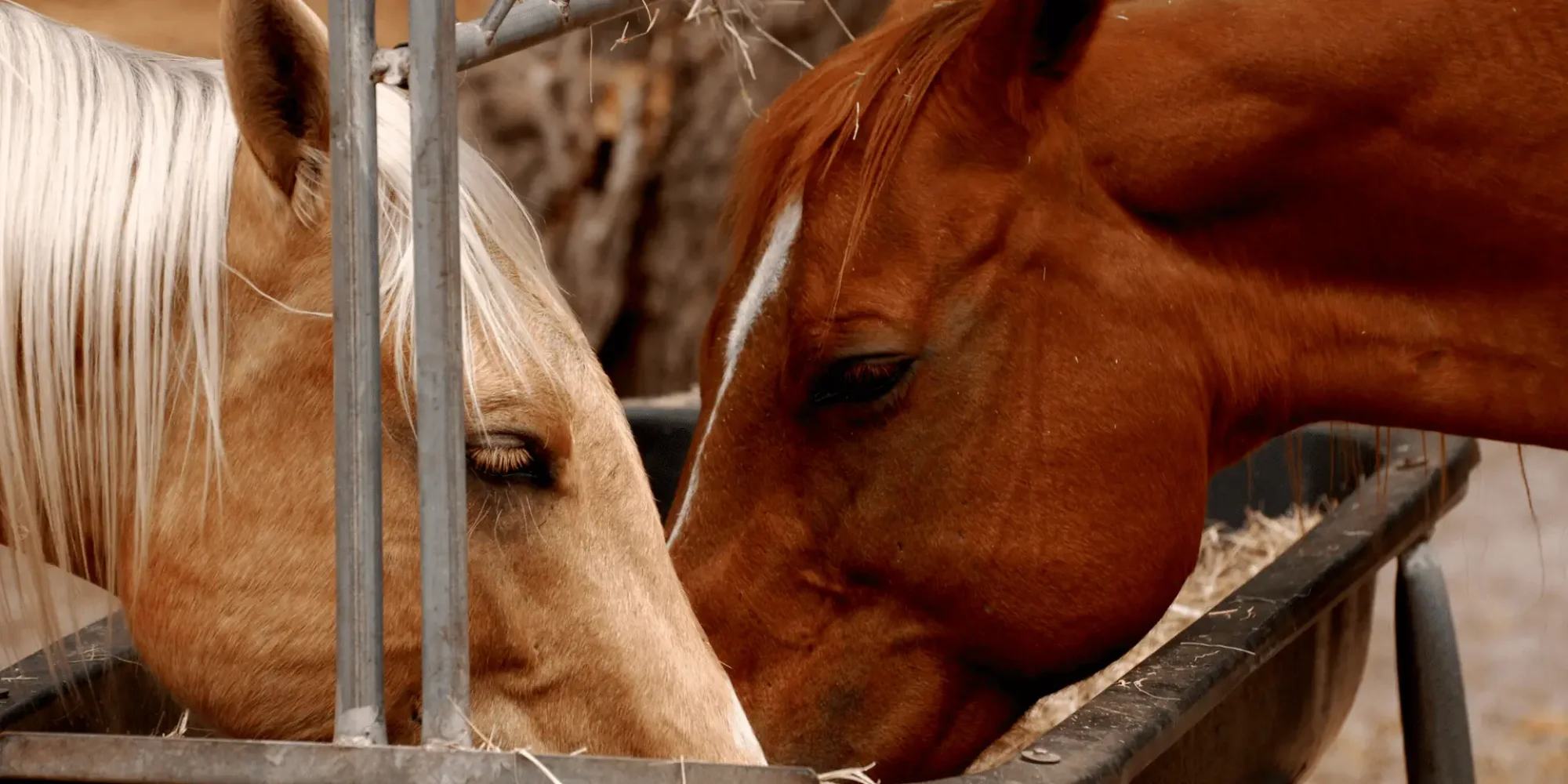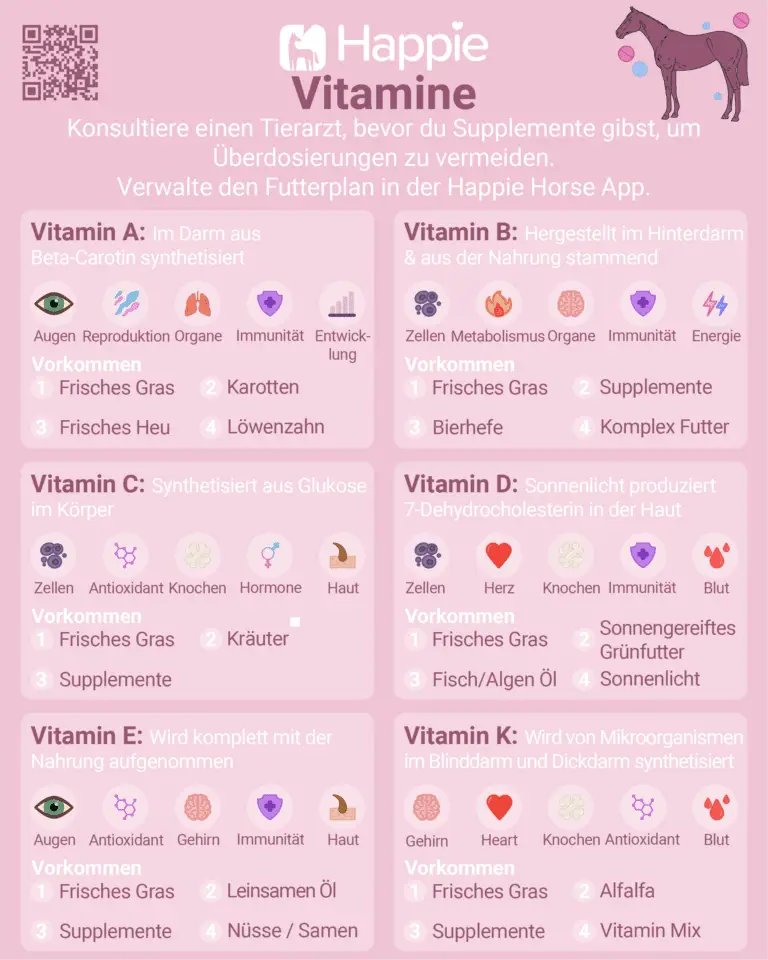
What Vitamins Does My Horse Need?
Vitamins are not only important for us humans, but also for your horse. That’s why it can make sense to supplement your horse with vitamins. However, before feeding vitamins, consult a veterinarian to know which vitamins you can supplement and to avoid overdosing.
All Vitamins Explained
Vitamin A
Vitamin A is synthesised from beta-carotene in the horse’s gut. Beta-carotene is mainly found in fresh grass, hay, carrots and dandelion.
Your horse needs the vitamin especially for reproduction, organs and eyes. But horses also need vitamin A for the immune system and development.
Vitamin B
Just like vitamin A, vitamin B is good for your horse’s organs and immunity, but the metabolism also relies on it. Besides energy production, cell division also needs vitamin B.
Vitamin B from food is mainly converted in your horse’s hind intestine. Besides fresh grass and brewer’s yeast, your horse gets vitamin B mainly through supplements and complex feed.
Vitamin C - an important antioxidant
Vitamin C is an antioxidant that is synthesised in the horse’s body from glucose. Furthermore, vitamin C is essential for the horse’s bones, hormones, skin and cells. Natural sources are mainly found in fresh grass and herbs. However, vitamin C is also available in the form of supplementary feed.
Vitamin D - the sun vitamin
As with us humans, vitamin D is produced in the skin by sunlight. In the horse’s skin, 7-dehydrocholesterol is then synthesised.
But your horse does not only metabolise vitamin D through sunlight, there are also natural sources. These include fresh grass and sun-ripened green fodder, but also fish and algae oil contain vitamin D.
The horse’s body needs the vitamin primarily for healthy bone density and a strong immune system. Vitamin D is just as important for the horse’s blood, heart and cells.
Vitamin E
In contrast to vitamin D, the horse’s body cannot synthesise vitamin E on its own, for example through sunlight, but must take it in through food alone.
Natural sources of the vitamin are nuts and seeds, fresh grass and linseed or linseed oil. Like other vitamins, vitamin E can also be supplemented with additional feed.
The horse’s body needs vitamin E especially for the brain, skin and eyes.
In addition, as an antioxidant, it protects cells from oxidative stress and supports, among other things, the function of muscles, heart and immune system.
Vitamin K
Just like vitamin E and C, vitamin K is an antioxidant vitamin. It is processed by microorganisms in the appendix and large intestine.
It promotes bone density and the stability of the horse’s connective tissue. If your horse is affected by a vitamin K deficiency, bruising of the hooves and legs or back problems may well occur.
Vitamin K is also essential for the heart and blood. It is mainly involved in blood clotting. At the same time, vitamin K is needed as an antioxidant and in the brain.
The vitamin is not only an ingredient of supplements and vitamin mixes, but is also naturally present in fresh grass and alfalfa (lucerne).
Download the vitamin overview now to keep track of all important vitamins, their occurrence and functions:

Feeding x Happie Horse App
A vitamin deficiency can manifest itself in many symptoms. Enter them in the symptom diary of the Happie Horse App and keep a record of exactly when each symptom occurred in your horse.
Now create your horse’s feed plan in the app and add vitamins and supplementary feed to the plan.

